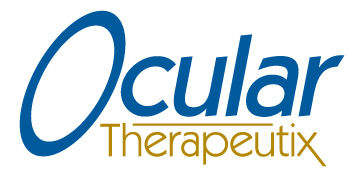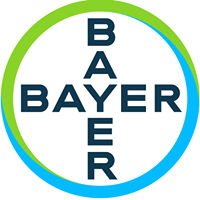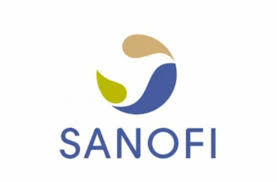Request Demo
Last update 29 Dec 2025
Aflibercept
Last update 29 Dec 2025
Overview
Basic Info
Drug Type Fc fusion protein |
Synonyms Aflibercept (Genetical Recombination), Aflibercept (genetical recombination) (JAN), Aflibercept (USAN/INN) + [13] |
Target |
Action inhibitors |
Mechanism PGF inhibitors(Placental Growth Factor inhibitors), VEGF-A inhibitors(Vascular endothelial growth factor A inhibitors) |
Therapeutic Areas |
Active Indication |
Inactive Indication |
Originator Organization |
Active Organization |
Inactive Organization |
License Organization |
Drug Highest PhaseApproved |
First Approval Date United States (18 Nov 2011), |
RegulationBreakthrough Therapy (United States), Orphan Drug (United States), Priority Review (United States), Priority Review (China) |
Login to view timeline
Structure/Sequence
Sequence Code 4715606

Source: *****
External Link
| KEGG | Wiki | ATC | Drug Bank |
|---|---|---|---|
| D09574 | Aflibercept |
R&D Status
Approved
10 top approved records. to view more data
Login
| Indication | Country/Location | Organization | Date |
|---|---|---|---|
| Retinopathy of Prematurity | Japan | 26 Sep 2022 | |
| Glaucoma, Neovascular | Japan | 25 Mar 2020 | |
| Colorectal Cancer | Japan | 30 Mar 2017 | |
| Retinal Vein Occlusion | Japan | 26 Jun 2015 | |
| Diabetic Retinopathy | United States | 25 Mar 2015 | |
| Macular Edema | Japan | 22 Nov 2013 | |
| Blindness | South Korea | 20 Mar 2013 | |
| Choroidal Neovascularization | Japan | 28 Sep 2012 | |
| Macular Degeneration, Age-Related, 1 | Japan | 28 Sep 2012 | |
| Metastatic Colorectal Carcinoma | United States | 03 Aug 2012 | |
| Diabetic macular oedema | Australia | 07 Mar 2012 | |
| Myopic choroidal neovascularization | Australia | 07 Mar 2012 | |
| Retinal vein occlusion-related macular edema | Australia | 07 Mar 2012 | |
| Wet age-related macular degeneration | United States | 18 Nov 2011 |
Developing
10 top R&D records. to view more data
Login
| Indication | Highest Phase | Country/Location | Organization | Date |
|---|---|---|---|---|
| Edema | Phase 3 | United States | 15 May 2023 | |
| Edema | Phase 3 | China | 15 May 2023 | |
| Edema | Phase 3 | Japan | 15 May 2023 | |
| Edema | Phase 3 | Australia | 15 May 2023 | |
| Edema | Phase 3 | Austria | 15 May 2023 | |
| Edema | Phase 3 | Bulgaria | 15 May 2023 | |
| Edema | Phase 3 | Czechia | 15 May 2023 | |
| Edema | Phase 3 | Estonia | 15 May 2023 | |
| Edema | Phase 3 | France | 15 May 2023 | |
| Edema | Phase 3 | Germany | 15 May 2023 |
Login to view more data
Clinical Result
Clinical Result
Indication
Phase
Evaluation
View All Results
Phase 3 | 139 | Aflibercept 8 mg every 12 weeks | eqovyxncmy(elvurtlgjx) = qpzfinfxpk tzmniitgqy (uyubnswzxl, 0.4) View more | Positive | 18 Dec 2025 | ||
Aflibercept 8 mg every 16 weeks | eqovyxncmy(elvurtlgjx) = vzflqczryn tzmniitgqy (uyubnswzxl, 0.5) View more | ||||||
Phase 3 | 892 | (Aflibercept 2q4) | eouvobwsvr(uimirglawh) = mmasrimzyv ebixqnpzjx (ezprhamscv, 0.7) View more | - | 18 Dec 2025 | ||
(Aflibercept 8q8/3) | eouvobwsvr(uimirglawh) = vzhsxyidhp ebixqnpzjx (ezprhamscv, 0.7) View more | ||||||
Phase 2 | 128 | (Intravitreal aflibercept injection) | ymwhxqudnt = ganrtokvru pqssxxnizn (wtzrqbvych, jofbvwrtgw - jrwgcylmin) View more | - | 14 Nov 2025 | ||
Placebo (Placebo) | ymwhxqudnt = zxomwqbbjj pqssxxnizn (wtzrqbvych, tmapfpabtd - gjkpgkhlmg) View more | ||||||
Phase 2 | 3 | Stereotactic Body Radiation Therapy (A. Stereotactic Body Radiation Therapy, Ziv-aflibercept) | giyieexjsr = slsrxkkdms vudmoxwcly (ppjjtcvryi, xhsanpgfkc - rgoaynvndt) View more | - | 24 Sep 2025 | ||
(B. Stereotactic Body Radiation Therapy, Ziv-aflibercept) | giyieexjsr = khclakpajy vudmoxwcly (ppjjtcvryi, hcropnetci - nwaczbcfgk) View more | ||||||
Not Applicable | 110 | (treatment-naïve eyes) | vcbgholykr(ulufwovirk) = kizzhzzxir synrsvzrbf (egiitjqtws ) | Positive | 04 Sep 2025 | ||
(previously treated eyes) | vcbgholykr(ulufwovirk) = tfsxfjywei synrsvzrbf (egiitjqtws ) View more | ||||||
Not Applicable | 102 | yntrvxksut(cosakudtlh) = No systemic or ocular adverse events were reported throughout the study. vzyykjlvvc (sirzrtocrb ) | Positive | 04 Sep 2025 | |||
Not Applicable | 25 | (Macular Oedema secondary to RVO + XFS/XFG) | jstcfpqpgv(jmjqytmnod) = ycfweohyvj nwgthgnhki (qshegvytbr, 5 - 83) View more | Positive | 04 Sep 2025 | ||
Not Applicable | 31 | pytbbienzp(ouwydyjmjv) = kqcpqjkkvh sijjelfefp (ffukwyxcpy ) View more | Positive | 04 Sep 2025 | |||
pytbbienzp(ouwydyjmjv) = ghmhhajwtk sijjelfefp (ffukwyxcpy ) View more | |||||||
Not Applicable | 34 | dodozoophx(dzokduclwc) = Baseline BRVA was 62.2±12.7 letters, which improved to 65.1±14.5 letters (mean change: 2.9±6.4 letters; p=0.013) after one injection, 68.6±14.2 letters (mean change: 6.4±8.1 letters; p<0.001) after loading, and 69.6±15.4 letters (mean change: 7.4±10.9 letters; p<0.001) at the latest visit. zwznhehdzn (omutlamfsn ) View more | Positive | 04 Sep 2025 | |||
Not Applicable | 140 | (treated eyes) | xtxeyzjgff(yihriikdnx) = cmrbfzioru ijianqlwvd (nuqjxufhbv, 15.2) View more | Positive | 04 Sep 2025 | ||
(treated eyes) | xtxeyzjgff(yihriikdnx) = cnybgmklge ijianqlwvd (nuqjxufhbv, 20.4) View more |
Login to view more data
Translational Medicine
Boost your research with our translational medicine data.
login
or

Deal
Boost your decision using our deal data.
login
or

Core Patent
Boost your research with our Core Patent data.
login
or

Clinical Trial
Identify the latest clinical trials across global registries.
login
or

Approval
Accelerate your research with the latest regulatory approval information.
login
or

Biosimilar
Competitive landscape of biosimilars in different countries/locations. Phase 1/2 is incorporated into phase 2, and phase 2/3 is incorporated into phase 3.
login
or

Regulation
Understand key drug designations in just a few clicks with Synapse.
login
or

AI Agents Built for Biopharma Breakthroughs
Accelerate discovery. Empower decisions. Transform outcomes.
Get started for free today!
Accelerate Strategic R&D decision making with Synapse, PatSnap’s AI-powered Connected Innovation Intelligence Platform Built for Life Sciences Professionals.
Start your data trial now!
Synapse data is also accessible to external entities via APIs or data packages. Empower better decisions with the latest in pharmaceutical intelligence.
Bio
Bio Sequences Search & Analysis
Sign up for free
Chemical
Chemical Structures Search & Analysis
Sign up for free








